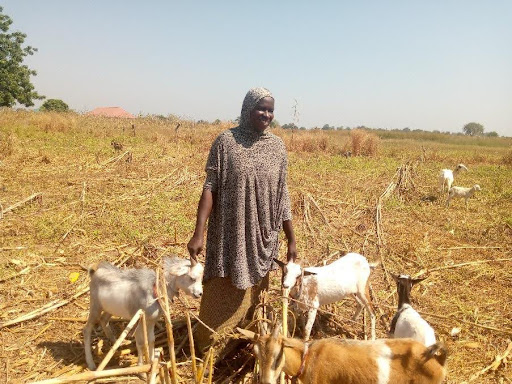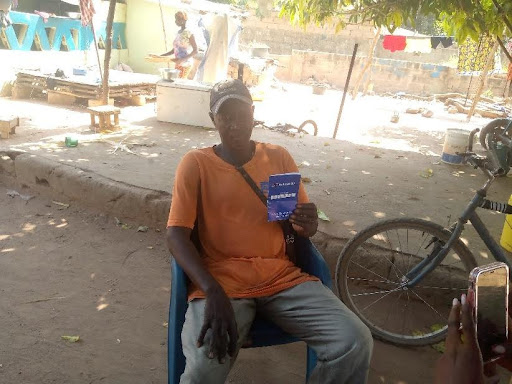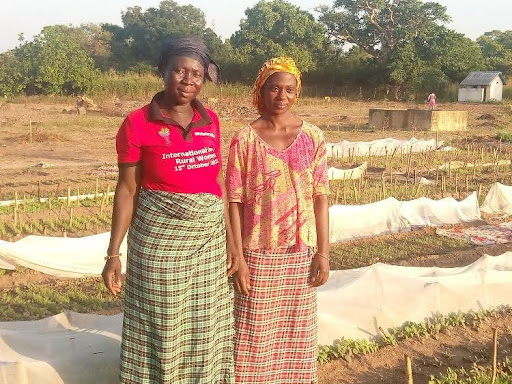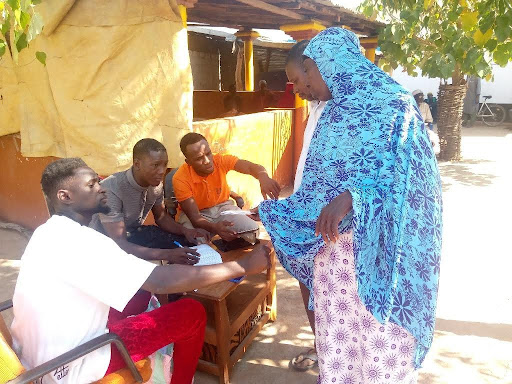By Ndey Sowe
The Nafa Cash Transfer, a core component of The Gambia’s Resilience, Inclusion, Skills, and Equity (RISE) Project, is reshaping lives in rural Gambia. By targeting extremely poor households, this initiative combines direct financial support with Social and Behavioural Change Communication (SBCC) to break the intergenerational cycle of poverty.
Implemented by the National Nutrition Agency (NaNA), the Department of Community Development, and the Directorate of Social Welfare, the Nafa Program enhances economic and educational outcomes in rural districts. The SBCC component emphasizes investments in maternal and child health, education, family planning, savings, entrepreneurship, and agriculture, empowering households to create sustainable livelihoods.

Tida Ceesay, a resident of Nyakoi Kerewan in the Upper River Region (URR), shared how the program has uplifted her family. “Before the Nafa Program, life was really difficult,” she recounted. “Now, every time I receive the cash transfer, I discuss it with my husband and prioritize buying food for the household. Thanks to the SBCC sessions, I also invested in goats and now own six of them. The benefits are immeasurable.”
Alagie Sima from Taibatou in URR echoed this sentiment, crediting the program for improving his financial stability. “We’ve opened a bank account and started saving,” he revealed. “I urge fellow beneficiaries to invest part of the money to sustain themselves when the program ends. It has ended my suffering and transformed my livelihood.”

Momodou Bah of Fulabantang in the Central River Region (CRR) emphasized how the program helped him provide for his family. “From the cash transfer, I bought rice, vegetables, and goats. I’ve also paid for my children’s school fees, uniforms, and books,” he said, urging others to use the funds wisely for long-term benefits.
In Kalagi, Fatou Snanyang from the Foni District praised the program and its stakeholders. “This initiative has supported rural women like me, particularly in agriculture. I’ve invested in goats, and they’ve already delivered twice,” she explained. Fatou also opened a credit union account, enabling her to save and sustain her small business.
Mai Camara, another beneficiary from Kalagi, expressed her gratitude for the project. “With ten rounds of cash transfers, I’ve supported my family, improved our agricultural production, and saved for the future. I hope stakeholders can continue or expand such programs.”

The Nafa Cash Transfer aligns with The Gambia RISE Project’s broader goals. Supported by $92.71 million in financing from the World Bank and the Global Partnership for Education, the five-year project aims to improve human capital by enhancing education quality, expanding employment opportunities, and bolstering social protection.
The project targets foundational learning in early childhood education through grade four, technical and vocational education, and income-generating activities for vulnerable households.
Beneficiaries across rural Gambia unanimously agree that the program has positively impacted their lives. They encourage sustainability-focused spending and express hope for similar initiatives in the future to ensure continued progress.
With stories of transformation like these, the Nafa Cash Transfer is not only alleviating poverty but also building resilience, empowering communities, and setting the foundation for a brighter future.


















